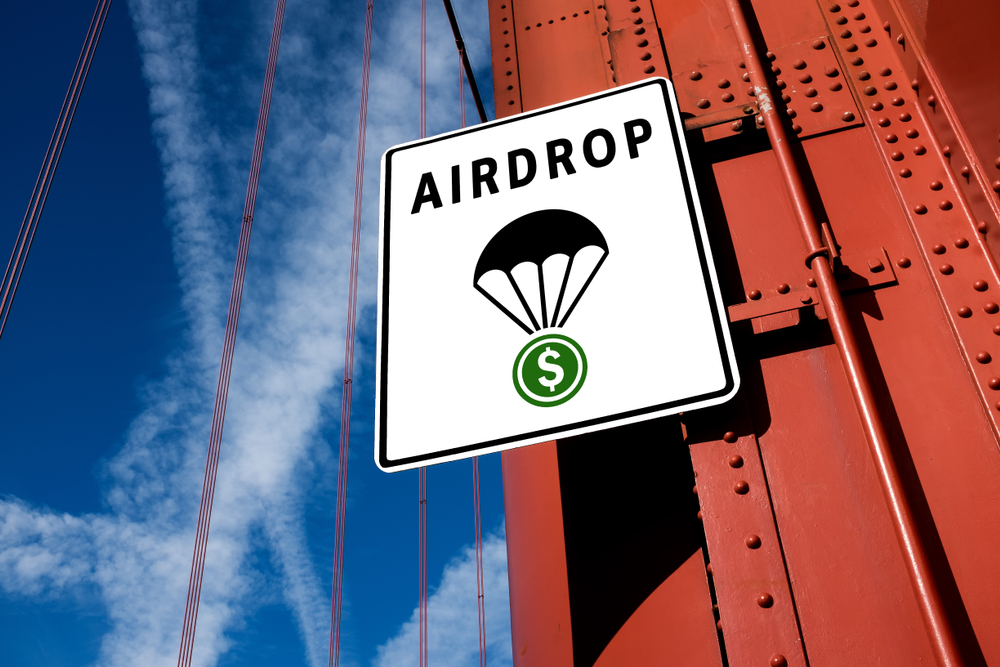Starknet Token Airdrop Hype Grows as Staking System Promises 12% Earning Returns

Starknet announced launch of STRK token and its airdrop | Credit: Pixabay
Key Takeaways
- Starknet’s distribution focuses on broad inclusion and rewarding diverse contributors across Web3.
- The STRK token is designed for immediate utility, driving usage, and security.
- Starkware’s inflation and reward proposal prioritizes sustainability and incentivizes staking.
Starting February 20 , STRK, the native token of Starknet, a blockchain created by the pioneering zero-knowledge-proof developer StarkWare, will be distributed.
In anticipation of the airdrop, StarkWare has recently proposed a plan for the token’s inflation, detailing the annual creation rate of new STRK tokens.
Unprecedented Token Distribution to Foster Inclusivity
The Starknet Foundation has announced a groundbreaking token distribution set to reach nearly 1.3 million eligible wallets, marking what it describes as the “broadest distribution of its kind” thus far.
Ethereum solo stakers operating up to 12 validators are poised for a significant benefit, with the allocation of thousands of tokens per validator, as detailed in a Starknet Foundation blog post . Moreover, the STRK token will be distributed not only to Ethereum developers but, in an unprecedented move, also to non-Web3 open source software developers, recognizing their contributions on GitHub.
Diego Oliva, CEO of the Starknet Foundation (SNF), emphasized that the initiative aims to establish a new standard for inclusivity within the digital asset space.
He stated :
“This technology is new and potentially impactful for applications across industries, and many leaders in related technological spaces deserve to have a stake in what’s to come.”
STRK Token Distribution with Utility-Focused “Provisions” Initiative
The Starknet Foundation (SNF) is engaging in the distribution of STRK tokens to drive Starknet’s adoption, setting its initiative apart from typical community incentive campaigns by providing the token with utility within the network that extends beyond governance roles.
STRK holders will have the power to vote on significant protocol changes. Additionally, the token offers the flexibility to cover network fees (or gas) with STRK as an alternative to Ether (ETH), highlighting its practical utility. Furthermore, STRK is anticipated to contribute to Starknet’s security through a staking mechanism, akin to ether’s function on the Ethereum mainnet.
Instead of labeling the distribution as an airdrop, the SNF describes it as “provisions,” and has laid out the eligibility criteria in detail, including a “Provisions Portal” where users can check their address eligibility.
This distribution aims to reach a wide array of Starknet users, contributors, and developers, making available part of the 900 million STRK tokens — which represents 9% of the total 10 billion supply — to the community.
Metrics Soar in Anticipation of STRK Token Airdrop
While the Starknet community awaits the STRK token airdrop, metrics for the Ethereum layer 2 network are witnessing significant growth, even though an official airdrop date remains unannounced.
Starknet, renowned for its use of zero-knowledge proofs to facilitate low-cost transactions, offers transaction fees that are approximately ten times less than those on the Ethereum mainnet, as per L2Fees data .

The network has seen a notable milestone with the total value locked (TVL) in Starknet-based protocols reaching a new peak of $56 million. A significant portion of this, $16.7 million, is anchored in Nostra , a dApp native to Starknet that enables users to lend, borrow, and exchange cryptocurrency. Moreover, trading volumes on Starknet have surged, hitting highs not observed since November.
This uptick in activity is primarily attributed to Ekubo , another protocol native to Starknet, which reported $15.5 million in trading volume over the past 24 hours and over $70 million in the past week.
Decentralizing Starknet with Proof-of-Stake and Staking Rewards
Starkware is embarking on a mission to decentralize Starknet by shifting transaction sequencing and proving on the network to a proof-of-stake protocol. This move will allow STRK token holders to stake their tokens to aid in securing Starknet, with the incentive of receiving newly-minted STRK as a reward.
Finding the right balance in such a system is crucial. While stakers must be adequately compensated to make their efforts worthwhile, overly generous rewards could lead to unsustainable token inflation.
To address this, Starkware has designed a reward algorithm that caps STRK inflation at a maximum of 4% annually. The potential earnings for individual stakers could surpass 12% per year, depending on the proportion of STRK’s total 10 billion supply that is staked.

It’s important to note that the proposed figures for Starknet’s token inflation and staking rewards are preliminary and subject to change. Starkware’s proposal will first be reviewed by the community, following which it must secure approval through a governance vote before being implemented into Starknet’s ecosystem.

